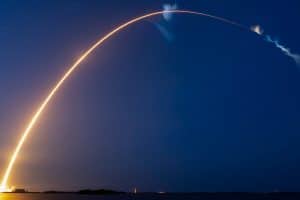During the weekend, Elon Musk announced that SpaceX is withdrawing its request to the Pentagon to help keep Ukraine’s Starlink satellite internet service running. Musk noted that SpaceX would continue funding Ukraine’s satellite internet out of pocket even if Starlink itself is still losing money at its current state.
Before his announcement this weekend, Musk mentioned that the costs of keeping Starlink active in Ukraine are closing in on $20 million per month. Musk noted that this was due to a variety of factors, such as the increasingly difficult task of defending the system against cyberattacks and jamming from Russia.
But according to a recent report from Politico, the Pentagon is still considering paying for Starlink’s service in Ukraine. Citing two US officials familiar with the matter, the publication noted that the Pentagon would likely be using a fund that’s been used to supply weapons and equipment to Ukraine, the Ukraine Security Assistance Initiative.
Elon Musk responded on Twitter to the news, noting that “SpaceX had already withdrawn its request for funding.” Musk had also noted that “To be precise, 25,300 terminals were sent to Ukraine, but, at present, only 10,630 are paying for service.”
As to why the Pentagon is still considering paying for Starlink even after Musk pledged to keep the service running in the country, the Politico report noted that this was partly due to the SpaceX CEO himself.
“A US official involved in the discussions said that there is little confidence that Musk can be trusted, forcing DoD to identify a way to keep Starlink or a suitable backup running in Ukraine for the foreseeable future. That official, like others interviewed for this article, spoke on condition of anonymity to freely discuss a sensitive topic,” the publication noted.
The Pentagon also previously noted that it is looking beyond Starlink for alternative satellite internet services to help Ukraine. “There’s not just SpaceX. There are other entities that we can certainly partner with when it comes to providing Ukraine with what they need on the battlefield,” Sabrina Singh, the Pentagon’s deputy press secretary, noted last Friday.
The Pentagon did not specify which satellite internet provider it was looking at as a potential alternative to Starlink. However, Viasat, a California-based satellite communications company, revealed to Politico that it was supporting Ukraine by providing free community Wi-Fi for Ukrainian refugees in Slovakia.
“We are actively working with customers and government partners to use our available capacity and terminals to quickly provide additional services in the country,” company spokesperson Daniel Bleier noted.
That being said, a top Ukrainian diplomat noted on Sunday that Kyiv is hoping that an arrangement can be made to keep Starlink operational in Ukraine.





